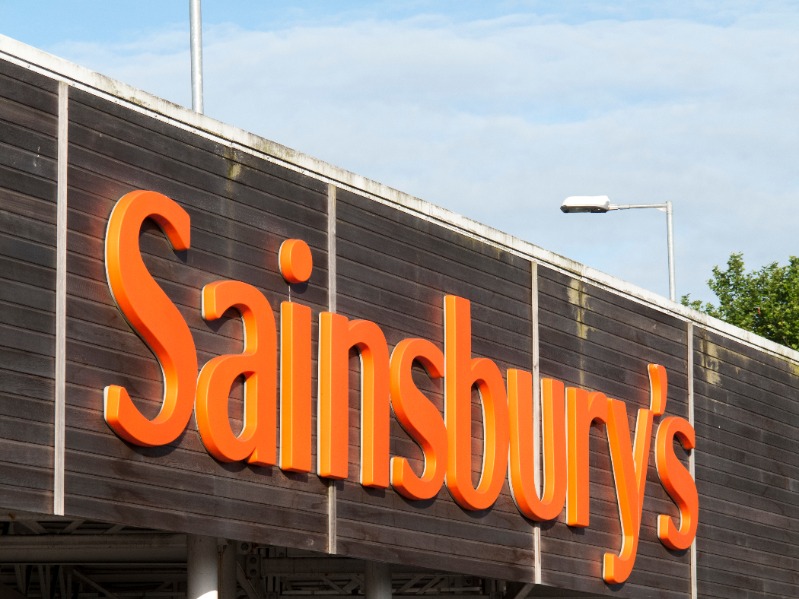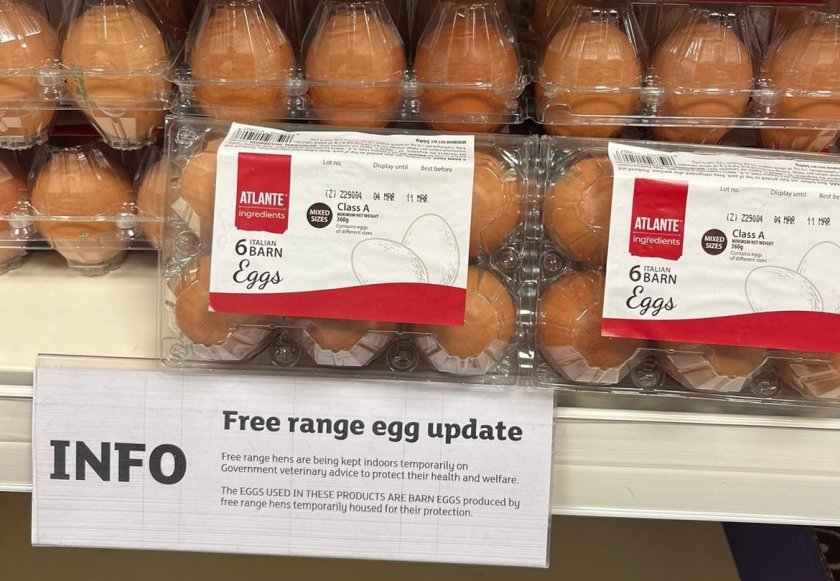
British egg producers have criticised Sainsbury's after the retailer confirmed it is temporarily stocking imported eggs from Italy due to shortages.
The retailer is facing fresh criticism from the sector after eggs imported from Italy were again spotted on shelves this week.
The barn eggs are supplied by Italian supplier Atlante Ingredients and are selling for £1.35 per half dozen.
Sainsbury's makes a point of promoting their strict adherence to stocking “100% RSPCA Assured Eggs”, but when they started importing eggs in November, it sparked an angry backlash.
One anonymous producer, quoted on an egg industry forum on the app Telegram, said: “Very good of the RSPCA to say nothing on the matter.
"Even better that their website wrongly suggests that all eggs at Sainsburys are RSPCA Assured. That is unless they are now certifying Italian barn eggs?"
He added: "They (RSPCA Scheme) happily take membership fees from pullet readers, laying farms and packers along the way. Every farmer should question why they continue to pay their fees in return for no support.”
The RSPCA Assured Scheme has a membership fee, with farmers having to adhere to the RSPCA’s detailed animal welfare standards.
Farms are visited regularly by an RSPCA Assessor to ensure good animal welfare. However, the fees more than doubled in the summer of 2021 for members.

There is a one-off joining fee of £36. A site revisit is then charged at £199 and an additional farm livestock officer visit at £325. A fee of £125 is also charged for derogation and exception requests.
At the time, Robert Gooch, BFREPA CEO said: “It is always disappointing when producer costs increase, particularly when egg prices are in the doldrums or are – in some cases – falling”.
Last year the RSPCA joined the NFU to launch a new report calling for transparency and consistency in animal welfare standards in the UK's trade policy.
Furthermore, through their post-Brexit poll, they ascertained that the UK public care about what they eat and how it is produced.
The poll showed that more than the majority (80%) of the British public believe that UK animal welfare standards should apply to imports.
The RSPCA are quoted last June as saying: “We need to maintain standards on product imports to the UK by stating that produce entering the country should always be produced to those same, important, high standards."
However, the sector has pointed out that imported Italian eggs on Sainsbury's shelves belong to no such assurance scheme.
This was verified by a RSPCA spokesperson, who explained that “Sainsbury’s own-branded eggs are all RSPCA Assured, but they do stock other branded eggs which aren’t.”
The barn eggs are supplied by Italian supplier Atlante Ingredients and are selling for £1.35 per half dozen, which is a departure from Sainsbury’s policy to stock only free-range eggs.
A Sainsbury’s spokesperson said: "Currently supermarkets are experiencing some supply challenges with eggs.
"At Sainsbury’s we are committed to sourcing British as much as possible and continue to work hard with our suppliers across the UK to ensure customers can buy what they need.
"To help maintain availability we are also temporarily sourcing some branded eggs from Italy, which will be clearly labelled on the packaging."
The supermarket chain added: “We have a longstanding commitment to only stock cage free eggs, which is why we are temporarily sourcing the Italian eggs.
"100% of our own brand eggs are also committed to being RSPCA assured, our Italian eggs are sold under the Atlanta brand.
Sainsbury’s has sold RSPCA Assured eggs since 2009 and still remains the largest retailer of RSPCA Assured products.
A RSPCA Assured spokesperson said: “We can confirm that all Sainsbury's own-brand eggs are 100% RSPCA Assured, and whether barn or free-range, eggs carrying the RSPCA Assured label are always higher welfare.
“However, we are aware that some supermarkets are temporarily stocking imported eggs due to shortages.
"We therefore encourage customers to continue to look for the RSPCA Assured logo to ensure that the eggs they buy meet the RSPCA's market leading higher welfare standards.”
Whilst many retailers blamed the shortage on the avian influenza outbreaks, BFREPA CEO Robert Gooch has accused supermarkets of using the outbreaks as an excuse.
Concerns that egg buyers were not doing enough to assist producers facing mounting production costs were made apparent as far back as spring last year, but were largely ignored.
Mr Gooch said in November: "Instead of investing in and managing a proper British supply chain, which is what [the retailers] claim to do for their customers, they have broken that supply chain and they are now importing substandard products.”
He also warned that importing eggs would undermine consumer confidence in Sainsbury’s.
